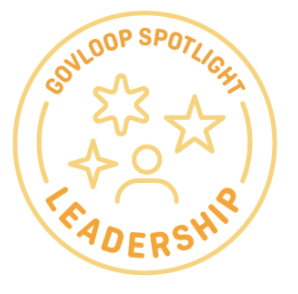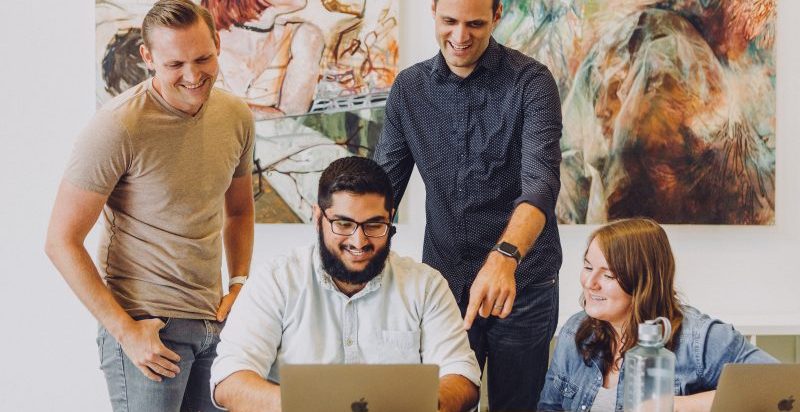Do you know what will differentiate you from being just an employee to a good employee? The answer is both simple and complex.
“What makes a good government employee isn’t that different from what makes a good employee, period. But we do have a necessity to have a passion for public service,” said Traci DiMartini, Chief Human Capital Officer for the General Services Administration (GSA).
Public service is a calling, DiMartini said at GovLoop’s virtual summit Wednesday. You may not receive riches and recognition – but you do the esteemed work of providing essential services to the public, whether you’re a frontline agent at the Social Security Administration or an IT jack-of-all-trades in a local government.
In addition to having a passion for public service, being a good government employee comes down to general good employee practices, such as:
- Having humility. “Everyone starts at the bottom,” DiMartini said. In addition to patience, humility is essential. Learn how to take directions and work (and play) well with others, she said.
- Having a sense of humor, especially when it comes to mistakes. For many employees, mistakes are ultimately recoverable and correctable. Practice learning how to build alliances to figure out a way forward.
The following are other career questions DiMartini answered. Check to see if you have asked any of the same.
Q: How can employees grow professionally when their bosses are closed off to trying new things?
“Never believe that anyone can stop your growth,” DiMartini said. Even if you can’t attend a training program, or your idea isn’t implemented, the process in trying is still an opportunity of growth and development.
But, additionally, ask your boss why – and approach the question in a positive, open-minded way. Your boss probably has a good reason. Bureaucracy doesn’t exist for the purpose of slowing things down, but to prevent bad decision-making and ensuring different angles are considered. Your boss may have experienced or seen something you may not have seen or experienced. It doesn’t hurt to ask, but approach the conversation assuming the best.
Q: How can we help coach government employees who are feeling burnt out?
Help them prioritize properly. Supervisors should be in the weeds with their team – not doing their work for them, but understanding what their loads are like and prioritizing realistically.
“We also have to acknowledge things are hard,” DiMartini said. We all recognize there’s really no good time to be out of the office – but taking time off remains important to avoid burnout.
Q: How can we work cross-generationally? And motivate the next generation of the government workforce?
“Learning can happen both ways,” DiMartini said. For example, older generations can learn how to capitalize on technology from younger generations, and younger folks can learn from the experience and skills of older folks. DiMartini believes government can be more successful if everyone respects and acknowledges that “each generation brings something to the table that can be useful for the generation above and below.”
Q: How do you keep employees engaged in the remote and now hybrid work environment?
Until DiMartini can return to headquarters, hosting structured and unstructured Zoom meetings with colleagues has worked – as well as respecting that people have lives outside of their work. “They spent all of August learning about my empty nest syndrome,” she said. Once more and more people return to the office, teams will have to tackle and right-size how important face time actually is. Just because you see someone in the office more does not necessarily mean they’re better employees, she pointed out.
Q: How do you help develop people’s skills post-pandemic?
Focus on transferable skills. “You can be the smartest procurement officer in the world, but if you can’t open your mind to doing things differently or learning new skills, you’re going to hit a wall.” Sometimes referred to as “soft” skills, DiMartini prefers calling them “strength” skills.
Don’t underestimate the value of failure as well. “Sometimes, failure will teach you things success never will,” DiMartini said. Learning how to handle failure and take risks in a calculated way will be valuable wherever you go.
Q: How do you differentiate between having a bad day and being in a bad workplace?
“Sometimes you just have to sit with it and wonder what else is going on,” DiMartini said. She listed some questions to ask yourself: Am I reacting because there are external, non-work-related factors that are making things amplified? Is it one specific issue, or a calculated series of issues? Can I build resilience and tough it out for a year, as long as I’m not being harmed?
Q: What is one takeaway you’d like to leave people with in regard to their career?
“Know that it goes by very fast,” DiMartini said. “Find where you’ll fit in – life is too short to work in a job you hate.”
Don’t miss out on other virtual learning opportunities. Pre-register for GovLoop’s remaining 2021 virtual summits today.






Leave a Reply
You must be logged in to post a comment.